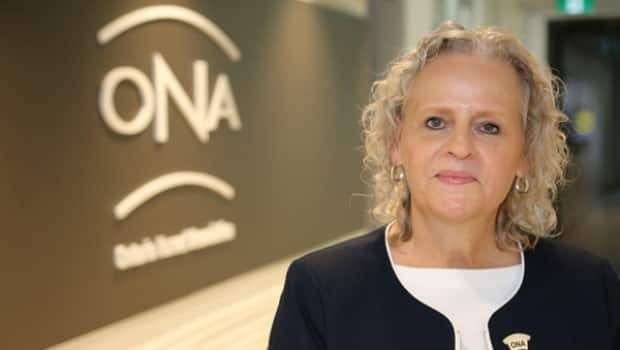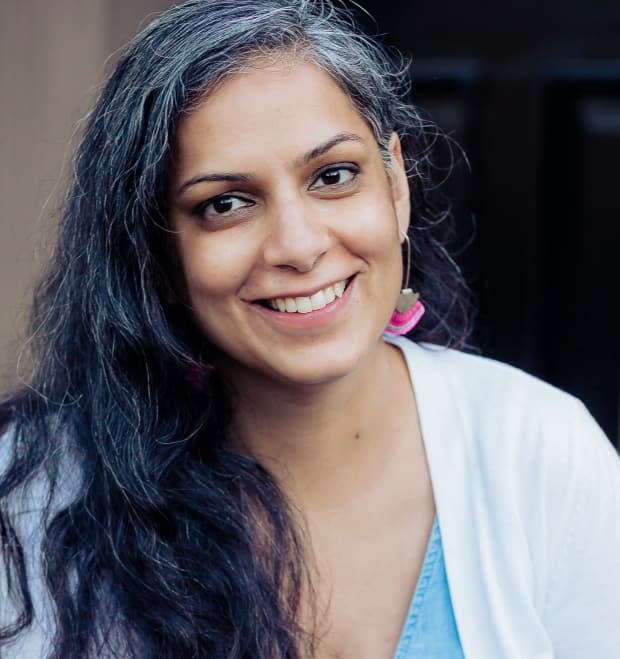Nurse practitioners, doctors should be treated equally under Juries Act, says ONA

The Ontario Nurses' Association (ONA) wants to know why doctors can easily be cleared for jury duty but nurse practitioners aren't given the same treatment.
Under the province's Juries Act, "medical practitioners," veterinary surgeons and coroners are "ineligible" for jury duty, along with those in 10 other job categories, including judges, police officers and firefighters.
But according to Vicki McKenna, the province's definition of "medical practitioners" includes working doctors but not nurse practitioners — registered nurses who've undergone additional training and testing, and have added responsibilities that include ordering diagnostic tests and prescribing medication.

In practice, the discrepancy means that while it's relatively simple for doctors to secure an exemption from jury duty, the process for nurse practitioners is "lengthy," said McKenna in a recent letter to Ontario Attorney General Doug Downey.
Nurse practitioners (NP) must apply to the court and provide evidence as to why the exemption is needed, McKenna wrote, with a judge ultimately making the final call.
"Unlike physicians, an exemption for an NP is not guaranteed," McKenna wrote in the letter.
"Removing NPs from the clinical setting for a potentially unknown period of time will disadvantage those Ontarians for whom they provide care."
'It is a concern'
Amarpreet Sikand also wonders about the inconsistency in how family doctors and nurse practitioners are treated under the act.
Sikand, practice and policy adviser with the Nurse Practitioners' Association of Ontario, said NPs in primary care may be responsible for hundreds of patients — who could be left hanging if their provider stepped away from their duties.

"I think that it is a challenging thing for many nurse practitioners, who are not able to leave practice because they have a responsibility to their patients," said Sikand, also a nurse practitioner in Peterborough.
The difference in how doctors and nurse practitioners are treated in this legislation could reflect an outdated understanding of how primary care operates in Ontario, she said.
"The situation we're in now in health care is nurse practitioners are functioning as the primary care providers or the 'most responsible provider" for their patients.
"I think there's a lack of awareness of this fact."
'I was surprised'
Erin Okanik, a primary health-care nurse practitioner, said she was surprised to hear that NPs are not included in the professional exemption list.
"Nurse practitioners I had assumed to be under the category of medical providers because we are providing care for patients across all kinds of different practice settings," said Okanik, who works at the Langs Community Health Centre in Cambridge. "I just made the assumption we were included. I'm surprised to hear we weren't."

Okanik said legislation might not have been changing at the same rate the profession was growing.
The number of nurse practitioners in the province has been rising in the years before the pandemic. According to the Nurse Practitioners' Association of Ontario, it went from 1,800 in 2010 to 3,083 in 2017.
As of Nov. 1., there were 4,421 NPs registered to practice, according to the College of Nurses of Ontario.
While growth has been evident, nurses have reported leaving the profession amid the pandemic, making it harder for NPs to close the service gap as the province continues to grow. Okanik said this could needlessly interrupt medical services for patients, especially because of strains in the health-care system due to COVID-19.
"We know that access to medical care is a challenge, particularly during the pandemic. ... I think it's just so important for patients to be able to access care, wherever it is available to them."
Nurses, doctors and others in the medical profession value their civic duty, Okanik said, "but certainly we also place a lot of importance on our duty to be there for our patients."
Sikand said her association has also been in touch with the province on this issue, but hasn't heard back.
CBC K-W reached out to the Ministry of the Attorney General for comment but did not receive a response by publication time.


